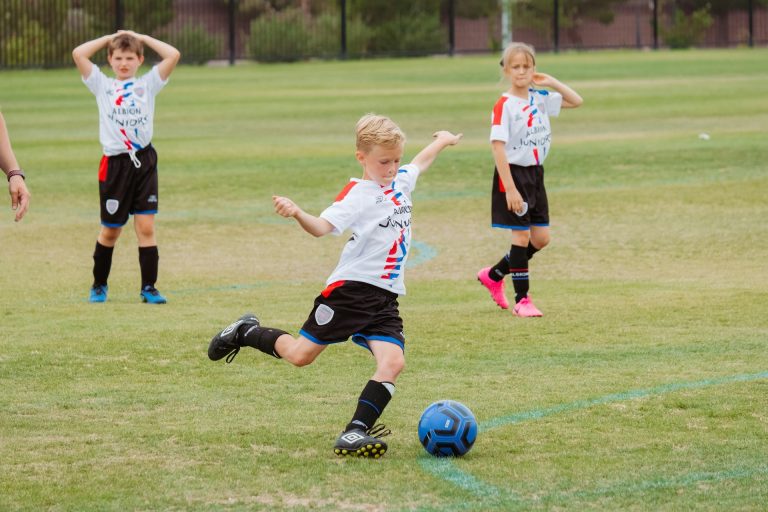13 Signs of an Entitled Teenager: Parents’ Guide

Parenting teenagers comes with unique challenges, and one of the most concerning behaviors parents face today is entitlement.
When teenagers develop a sense that they deserve special treatment, material possessions, or success without effort, it can strain family relationships and hinder their personal growth.
The teenage years represent a critical period for character development, making it essential to address entitled attitudes before they become ingrained as adult patterns.
Research shows that teenagers who learn to appreciate what they have and work for their goals develop stronger resilience and better social connections throughout their lives.
By implementing consistent approaches and maintaining patience during this challenging phase, families can work together to build mutual respect and understanding.
What Is Entitlement in Teenagers?
Understanding the difference between normal teenage behavior and entitlement helps parents respond appropriately to challenging situations.
Entitlement goes beyond typical adolescent boundary-testing and represents a more profound misunderstanding of how relationships and responsibilities work.
Teenagers with entitlement issues develop an unrealistic belief system where they think they deserve privileges, possessions, or special treatment without earning them through effort or demonstrating good behavior.
This mindset often emerges during adolescence when teens are forming their identity and naturally testing boundaries, making it sometimes difficult to distinguish from normal teenage behavior.
This creates a pattern in which they consistently prioritize their wants and needs while disregarding the rights, feelings, and limitations of those around them.
Why Do Teenagers Become Entitled?
Understanding the root causes of teenage entitlement helps parents address the behavior more effectively and with greater compassion.
- Overprotective Parenting: Shielding teens from natural consequences creates unrealistic expectations about how the world works.
- Inconsistent Boundaries: Mixed messages about rules can confuse teenagers about what is acceptable behavior. Frequently changing or unenforced boundaries encourage teens to push their limits constantly.
- Material Abundance: Easy access to possessions makes teenagers take comfort and luxury for granted. They fail to understand the effort required to earn money or appreciate what they have.
- Social Media Influence: Constant exposure to curated online content creates unrealistic lifestyle expectations. Teenagers feel entitled to the same experiences and possessions they see others displaying.
- Fear of Disappointment: Parents give in to demands to avoid conflict or seeing their teenager upset. This teaches teens that persistence and emotional outbursts will ultimately lead to achieving their goals.
By recognizing these underlying causes, parents can shift from reactive responses to solutions that address the source of the problem rather than just the symptoms.
Clear Signs of an Entitled Teenager
Recognizing entitled behavior early helps parents address these patterns before they become ingrained habits.
Here are the most common warning signs that indicate a teenager has developed an unhealthy sense of entitlement.
1. Constantly Demands More Without Gratitude

Your teenager continuously asks for new privileges, possessions, or experiences without acknowledging what they already have or expressing appreciation for past gifts.
This pattern creates chronic dissatisfaction and an inability to appreciate life’s blessings, making genuine happiness increasingly challenging to achieve.
Example: After receiving a new smartphone, they immediately complain it’s not the latest model and demand an upgrade, showing no gratitude for the expensive gift they just received.
2. Shows Little Empathy for Others

Your teen rarely considers how their actions affect others and shows minimal concern for friends’, family members’, or strangers’ feelings and situations.
Lack of empathy severely damages relationships and prevents the development of emotional intelligence necessary for personal and professional success.
Example: When a family member is stressed about work, they continue making loud noise or demands without considering the impact on others’ well-being.
3. Refuses to Follow Rules or Respect Authority

They consistently challenge household rules, school policies, and authority figures, believing these standards shouldn’t apply to them specifically.
This behavior leads to ongoing conflicts with teachers, employers, and law enforcement, potentially resulting in academic or legal consequences.
Example: Breaking curfew repeatedly while arguing that the rule is “stupid” and they shouldn’t have to follow it because they’re “responsible enough” to make their own decisions.
4. Expects Special Treatment All the Time

Your teenager believes they deserve different, preferential treatment in various situations, from family rules to school assignments.
This expectation creates disappointment and anger when the real world doesn’t provide special accommodations, leading to poor adjustment in college and work environments.
Example: Expecting to be excused from household chores that siblings must complete, or asking teachers for deadline extensions without valid reasons.
5. Blames Others for Their Mistakes

When things go wrong, they immediately point fingers at parents, teachers, friends, or circumstances rather than taking personal responsibility.
This pattern prevents learning from mistakes and developing problem-solving skills, hindering personal growth and professional development.
Example: Failing a test and blaming the teacher for “not explaining it well enough” rather than acknowledging they didn’t study adequately.
6. Doesn’t Accept “No” as an Answer

They persist in arguing, negotiating, or manipulating when told they cannot have something or do something they want.
This behavior damages relationships and creates ongoing power struggles while failing to teach them that disappointment is a normal part of life.
Example: When denied permission to attend a party, they continue arguing for hours, try to involve other family members, or attempt to go anyway.
7. Gets Upset When Things Don’t Go Their Way

Minor disappointments or changes in plans trigger disproportionate emotional reactions, including anger, sulking, or emotional outbursts.
Poor emotional regulation skills lead to relationship problems and difficulty handling the inevitable disappointments of adult life.
Example: Having a meltdown when a favorite restaurant is closed or when plans change due to weather, responding with anger rather than adaptability.
8. Takes Advantage of Others’ Kindness

They exploit generous friends, family members, or teachers without reciprocating kindness or considering the burden on others.
This behavior eventually drives away supportive relationships, leaving them isolated when they most need help and support.
Example: Consistently asking friends for rides, money, or favors while never offering help in return or expressing genuine appreciation.
9. Rarely Offers to Help at Home or School

They avoid contributing to household tasks, group projects, or community activities unless specifically required and monitored.
This lack of contribution prevents them from developing a service mindset and work ethic essential for success in relationships and careers.
Example: Walking past dishes in the sink, laundry that needs folding, or a family member struggling with groceries without offering assistance.
10. Focuses Excessively on Material Possessions

Their happiness and self-worth seem directly tied to acquiring new things, brand names, or keeping up with peers’ possessions.
This materialistic focus prevents the development of intrinsic values and creates a never-ending cycle of dissatisfaction and financial irresponsibility.
Example: Constantly comparing their clothes, electronics, or experiences to friends’ and becoming upset when others have “better” items.
11. Shows Disrespect in Tone or Behavior

They speak to parents, teachers, or other adults with dismissive tones, eye-rolling, interrupting, or other disrespectful behaviors.
Disrespectful communication patterns damage important relationships and create barriers to receiving help, guidance, and opportunities from adults.
Example: Responding to parental guidance with “Whatever” or “You don’t understand anything” while rolling their eyes and walking away.
12. Ignores Responsibilities but Expects Rewards

They want privileges, allowances, or special treatment while consistently avoiding or inadequately completing their obligations.
This disconnect between effort and reward prevents them from understanding how success works in school, relationships, and careers.
Example: Expecting their allowance despite not completing assigned chores, or wanting to use the car while avoiding responsibilities like maintaining grades or helping with family tasks.
13. Believes the Rules Don’t Apply to Them

They act as though family rules, school policies, or social expectations are meant for others but not for them specifically.
This mindset leads to shock and difficulty when they encounter real-world consequences in college, work, or legal situations where exceptions aren’t made.
Example: Ignoring screen time limits while siblings follow them, or believing they should be exempt from consequences that apply to their peers.
How to Address and Manage Entitlement in Teenagers
Addressing entitlement requires patience, consistency, and clear strategies that help teenagers develop healthier perspectives on relationships and responsibilities.
| Strategy | What To Do | Why It Works | Example |
|---|---|---|---|
| Set Clear Boundaries | Establish rules with consistent consequences | Shows privileges require responsibility | “Car use = fill gas tank + 10 PM return or lose car for a week” |
| Encourage Gratitude | Practice thank-you notes, family discussions, and volunteer work | Builds appreciation and perspective | Weekly gratitude sharing or monthly food bank volunteering |
| Model Behavior | Show humility and gratitude in your actions | Teens learn from observation | Admit mistakes openly, and thank others for help |
| Teach Responsibility | Assign chores, require work for privileges | Connects effort with rewards | “Earn concert money through extra yard work.” |
| Set Realistic Expectations | Discuss the effort needed for success | Shows that success requires work | Talk about how athletes train for |
From Entitled to Confident
Managing entitlement in teenagers is a process that requires patience and consistency from parents. The key is to start with small changes and build on success over time.
Celebrate progress when your teenager shows appreciation, takes responsibility, or considers the needs of others.
Remember that addressing entitlement now helps prepare your teenager for the responsibilities of adult relationships.
The skills they acquire through this process will serve them throughout their lives, enabling them to build meaningful connections and achieve genuine success through their efforts.
Have you noticed any of these entitled behaviors in your teenager? Share your experiences in the comments below, along with strategies that have worked in your family.






